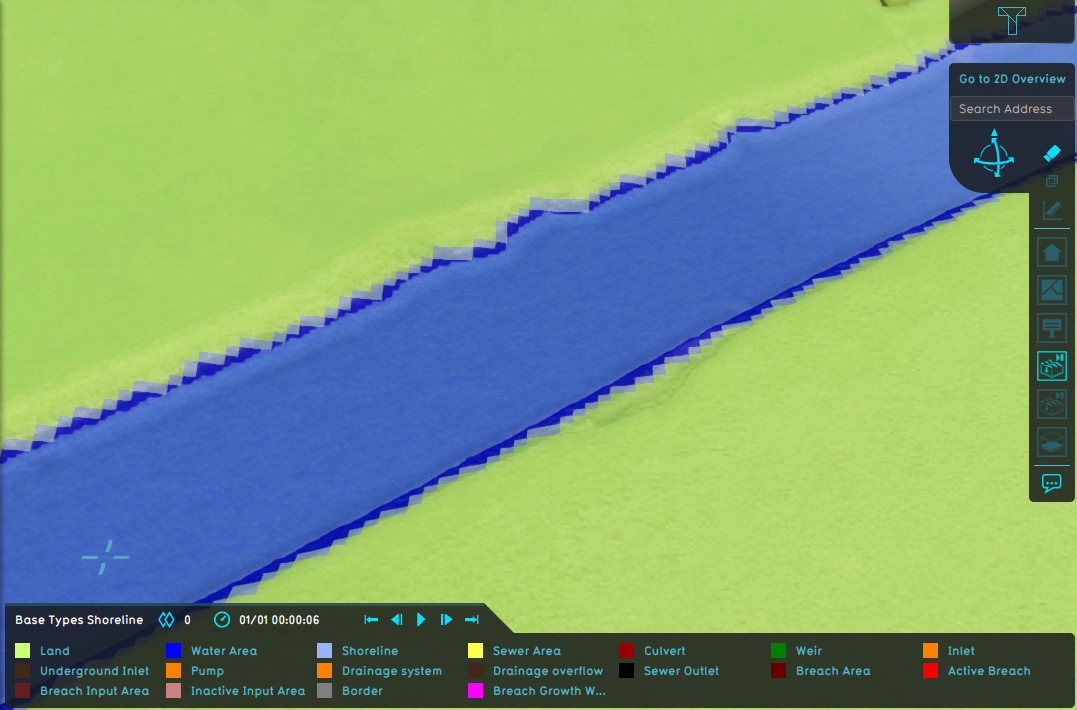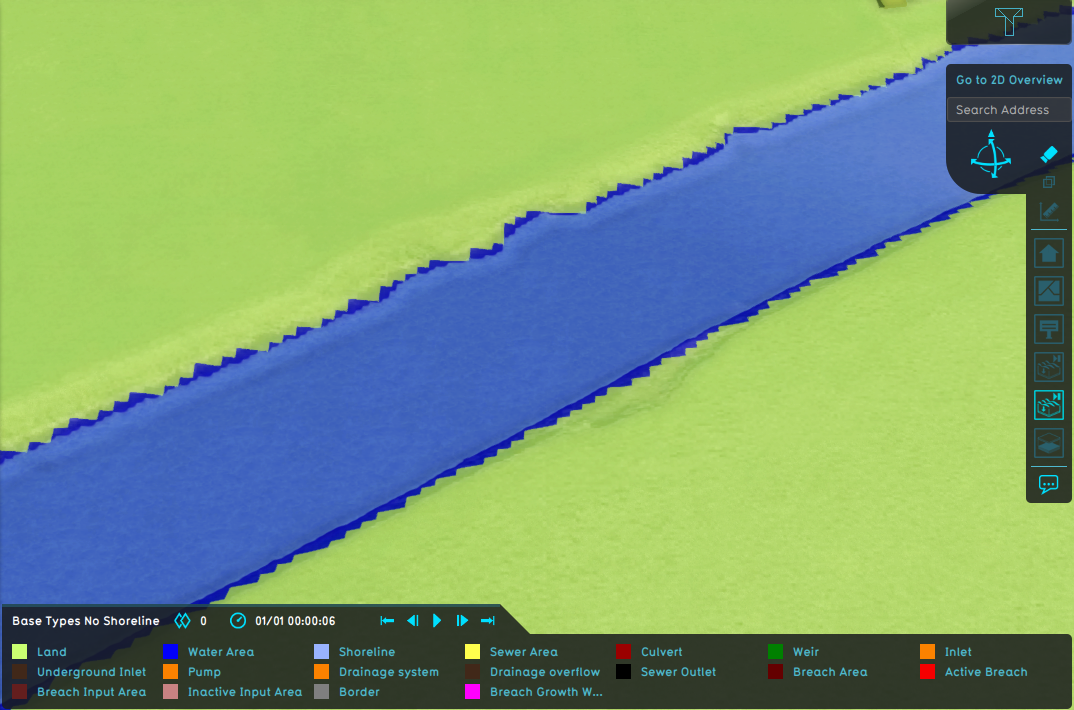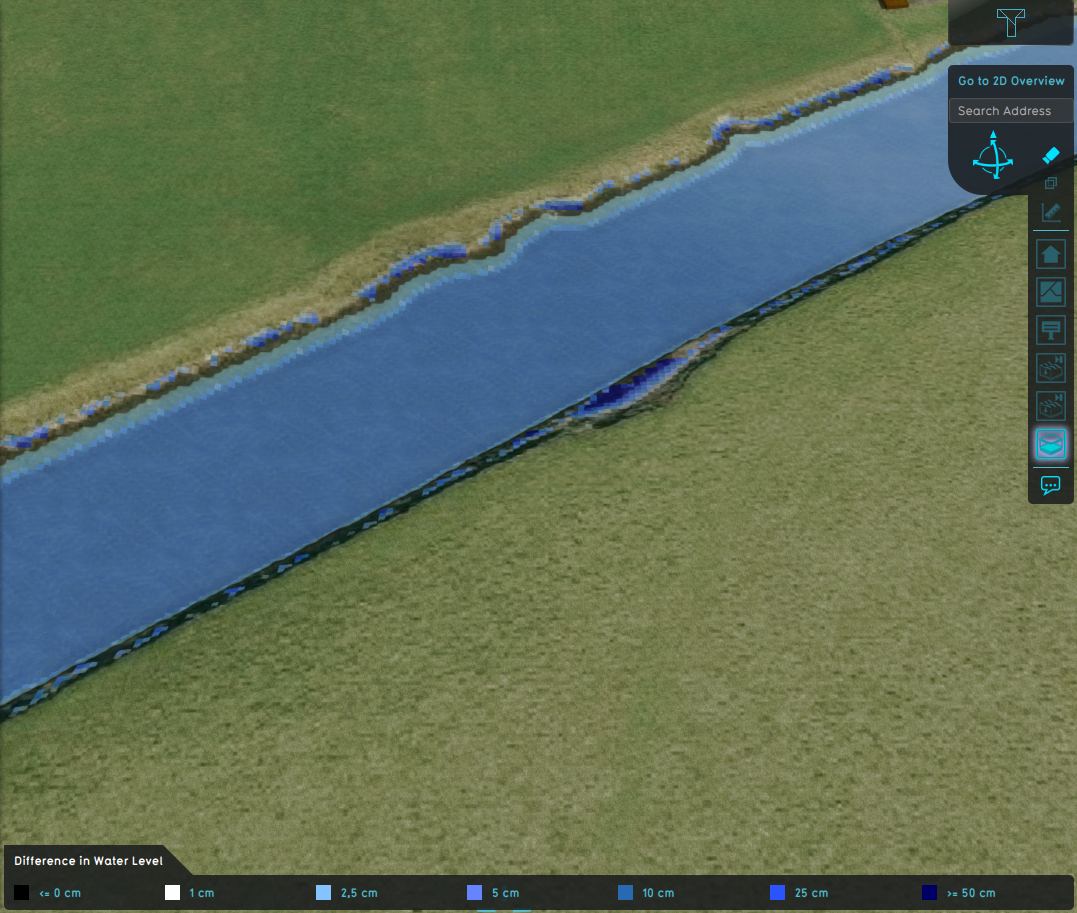Shoreline (Water Overlay): Difference between revisions
Jump to navigation
Jump to search
mNo edit summary |
No edit summary |
||
| Line 9: | Line 9: | ||
When a Waterway polygon is not correctly positioned in relation to the DEM this can result in filling up the nearby land with water at the start of the simulation. This will result in a lower water level then is expected from the water area value. To correct this, a "shoreline" is added at neighbouring cells. At the start of the simulation, these shoreline cells will also be filled with water up to the nearby water level to prevent the initial flush. | When a Waterway polygon is not correctly positioned in relation to the DEM this can result in filling up the nearby land with water at the start of the simulation. This will result in a lower water level then is expected from the water area value. To correct this, a "shoreline" is added at neighbouring cells. At the start of the simulation, these shoreline cells will also be filled with water up to the nearby water level to prevent the initial flush. | ||
<gallery mode=nolines> | |||
File:Wateroverlay_shoreline.png|Water Overlay with shoreline active. | |||
File:Wateroverlay_without_shoreline.png|Water Overlay without shoreline active. | |||
File:Wateroverlay_difference_waterlevel.png|Difference in [[Surface last value result type (Water Overlay)|water level]]. | |||
</gallery> | |||
{{article end | {{article end | ||
Revision as of 10:27, 29 January 2024
| Icon | Attribute | Unit | Range | Description | Default value |
|---|---|---|---|---|---|
| |
SHORELINE | boolean | Whether to automatically fill cells near a water terrain when there is a mismatch between the extend of the water terrain and the DEM. | True |
When a Waterway polygon is not correctly positioned in relation to the DEM this can result in filling up the nearby land with water at the start of the simulation. This will result in a lower water level then is expected from the water area value. To correct this, a "shoreline" is added at neighbouring cells. At the start of the simulation, these shoreline cells will also be filled with water up to the nearby water level to prevent the initial flush.
Difference in water level.







